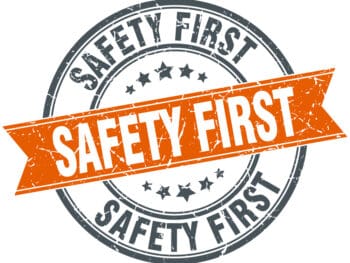Having a drug-free workplace is an important step in reducing workers comp costs. Employees using drugs or under the influence of alcohol are more likely to have accidents and make mistakes. They also have higher rates of absenteeism and are less productive. In addition, some states and insurers offer a workers comp premium reduction for employers that have a drug-free workplace program.
The Department of Labor Data
The Department of Labor (DOL) has significant data on drugs and alcohol in the workplace. Some of the findings are that
- 75% of the nation’s current illegal drug users are employed
- 3.1% say they have used illegal drugs before or during work hours
- 79% of the nation’s heavy alcohol users are employed
- 7.1% say they have consumed alcohol during the workday
It is important for employers to encourage workers with substance abuse issues to seek help. This encourages employees not to hide their problem, which can make the risk of accidents more likely. Also, employees who have a status as being a drug addict or alcoholic may be protected under disability discrimination laws.
Drug-Free Written Policy
The first step in establishing a drug-free workplace is to have a written policy that is distributed to all employees at all levels. The policy should:
- Tell employees that the unlawful manufacture, distribution, dispensing, possession or use of a controlled substance is prohibited in the workplace
- Specifies the actions that will be taken against employees for violating that prohibition
- Tells employees that they must notify you in writing if convicted for violating a criminal drug statute occurring in the workplace and must do so no more than five calendar days after the conviction
Drug-Free Awareness Program
Employers should establish an ongoing drug-free awareness program to inform employees about
- The dangers of drug abuse in the workplace
- The policy of maintaining a drug-free workplace
- Any available drug counseling, rehabilitation, and employee assistance programs
- The penalties for drug abuse violations occurring in the workplace
The Drug-Free Workplace Act of 1988
The Drug-Free Workplace Act of 1988 applies to federal contractors. Federal contractors are businesses that have a contract with or subcontract with a business or government agency that has a contract with the federal government. Businesses covered under the Act must make a good faith effort, on a continuing basis, to maintain a drug-free workplace. That means that they must publish a drug-free workplace statement and establish a drug-free awareness program for employees. In addition, they must take actions concerning employees who are convicted of violating drug statutes.
The Drug-Free Workplace Advisor
The Department of Labor has a variety of resources for employers, workers, associations and unions to assist in maintaining drug-free workplaces. The Drug-Free Workplace Advisor helps employers build tailored drug-free workplace policies and provides guidance on developing comprehensive drug-free workplace programs. It is available at http://www.dol.gov/elaws/drugfree.htm.
Drug Testing
Some companies perform drug testing as part of their effort to reduce workers’ comp costs. Companies use pre-employment (post-offer) drug and alcohol testing as well as post-accident and random drug testing. In some states, if a private employer chooses to conduct workplace drug and alcohol testing, the employer must follow state rules. In other states there are incentive programs designed to encourage workplace drug and alcohol testing programs. Employers should consult an attorney for other rules that might apply. We have a FREE set of drug laws covering individual states available at http://reduceyourworkerscomp.com/drug-testing-state-laws.php.
Author Rebecca Shafer, JD, President of Amaxx Risk Solutions, Inc. is a national expert in the field of workers compensation. She is a writer, speaker, and publisher. Her expertise is working with employers to reduce workers compensation costs, and her clients include airlines, healthcare, printing/publishing, pharmaceuticals, retail, hospitality, and manufacturing. She is the author of the #1 selling book on cost containment, Workers Compensation Management Program: Reduce Costs 20% to 50%. Contact:RShafer@ReduceYourWorkersComp.com.
Editor Michael B. Stack, CPA, Director of Operations, Amaxx Risk Solutions, Inc. is an expert in employer communication systems and part of the Amaxx team helping companies reduce their workers compensation costs by 20% to 50%. He is a writer, speaker, and website publisher. www.reduceyourworkerscomp.com. Contact: mstack@reduceyourworkerscomp.com.
©2013 Amaxx Risk Solutions, Inc. All rights reserved under International Copyright Law.






















